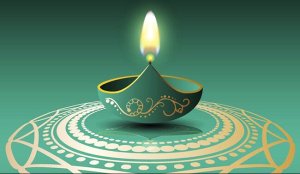Grey Rainbow tells of the deep love between Nuer, the son of an elephant camp owner, and Porsche - a law student and his roommate in school. Nuer is a practically minded young man who is capable of a great deal of affection and the first half of the movie shows his evolution from a close minded person living a straight life to a most accomplished young man who reaches his full development with the help of Porsche. His friend, Porsche, on the other hand is a well balanced individual from the beginning (though not exempt from doubt), showing an inclination towards the spiritual and transcendental - thus preparing the grounds for a very surprising ending; one that may not be to everybody’s liking but which is full and rich and not deprived of a sense of happiness and fulfillment.
The story is convincing; there is a great deal of social awareness in situations describing the different reactions (both negative and positive) to their condition as a gay couple. LGBT issues are handled with a great deal of sensitivity and realism which makes this movie a cut above the rest. The end however, falls into a very different category and there is a strong discrepancy between the largest part of the movie tackling everyday problems realistically (from unwanted pregnancy to parental rejection), and the abrupt ending turning very mystical and transcendental. The script needs to be polished because the change is much too abrupt.
But this shortfall can be overlooked by the mostly excellent acting of its main and supporting characters. The acting is natural, not contrived as in so many of these movies with a social agenda. Both sets of parents play a wonderful role. Pay close attention to Nuer’s parents and their Buddhist background... it is the key to understand the entire movie. It is a movie that can be seen more than once since it has multiple layers of meaning and most of it is found in the understanding that Buddhism has of love as an expression independent of sex and gender.
The story is convincing; there is a great deal of social awareness in situations describing the different reactions (both negative and positive) to their condition as a gay couple. LGBT issues are handled with a great deal of sensitivity and realism which makes this movie a cut above the rest. The end however, falls into a very different category and there is a strong discrepancy between the largest part of the movie tackling everyday problems realistically (from unwanted pregnancy to parental rejection), and the abrupt ending turning very mystical and transcendental. The script needs to be polished because the change is much too abrupt.
But this shortfall can be overlooked by the mostly excellent acting of its main and supporting characters. The acting is natural, not contrived as in so many of these movies with a social agenda. Both sets of parents play a wonderful role. Pay close attention to Nuer’s parents and their Buddhist background... it is the key to understand the entire movie. It is a movie that can be seen more than once since it has multiple layers of meaning and most of it is found in the understanding that Buddhism has of love as an expression independent of sex and gender.
Was this review helpful to you?

























